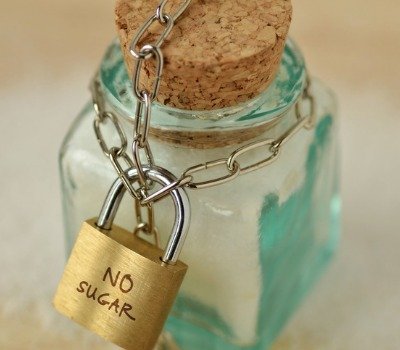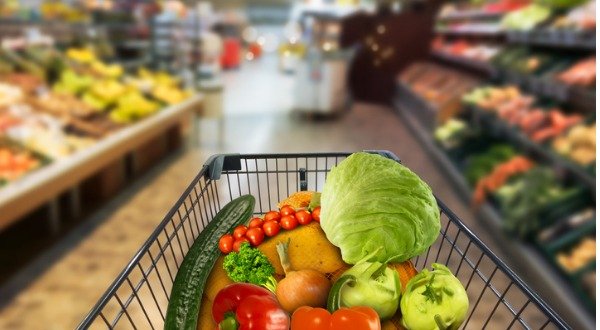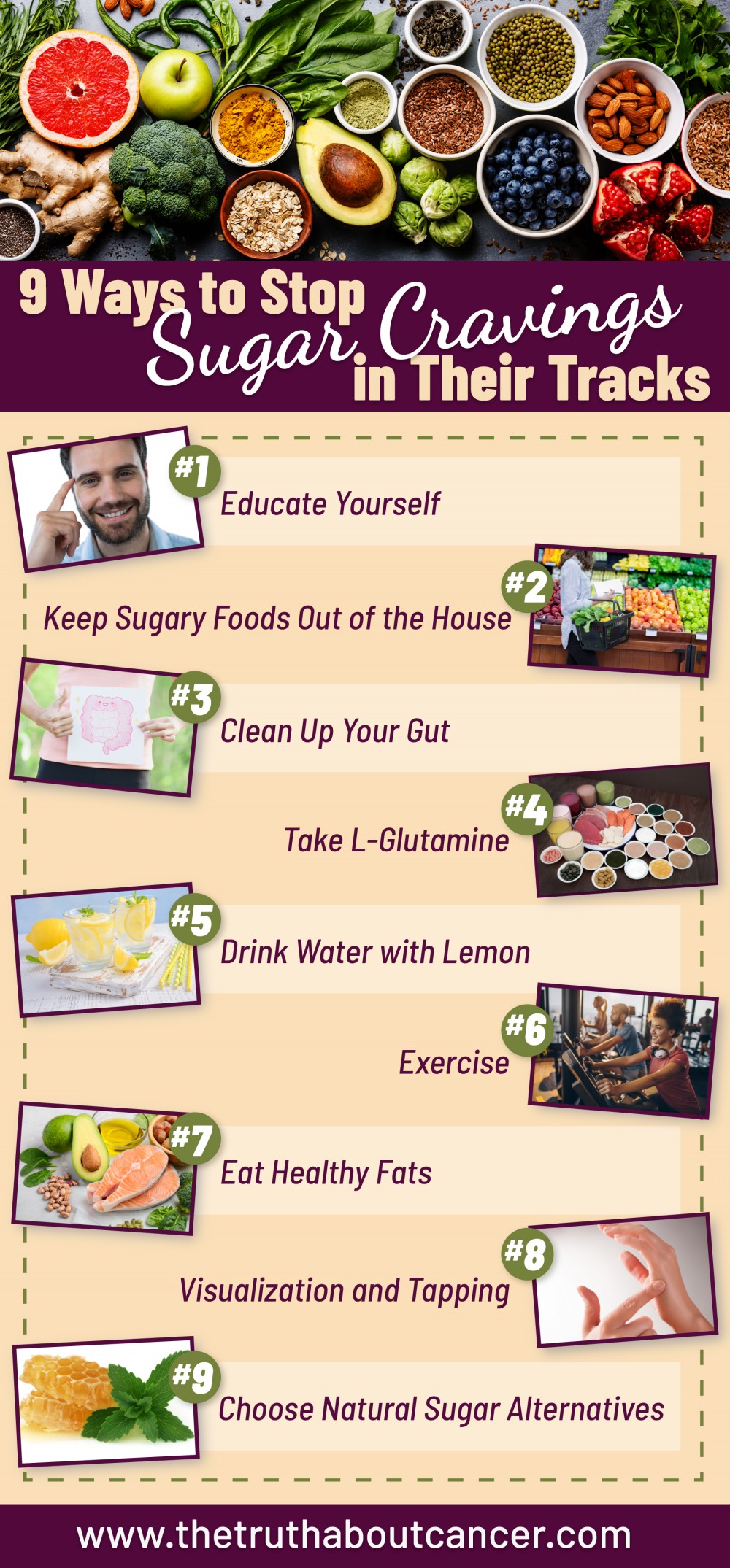When you hear people say, “sugar is evil,” you may think they are exaggerating. I used to think this way too. I mean, human beings have been eating sweet things forever, right? Even before commercial sugar production came along, weren’t there foods that tickled our taste-buds, like honey and fruit?
It is true that people have always had a propensity for the sweet stuff. But before the advent of the commercial sugar industry, folks ate a whole lot less of it.
Personally, I have been on a journey with sugar. It’s a love hate relationship. I love how it tastes, but I hate how it makes me feel. The first time in my life that I ditched all sugar was when Ty and I lived in New Zealand. I was experiencing pain and numbness in my leg, which led to difficulty walking.
After Ty and I did a little research, we realized that sugar was sabotaging my health, and so I ditched all processed sugar. Within a day or two, the pain was gone and I felt like my old self again.
It was wonderful! But then we moved back to America, and I fell into my old habits. There is something to the saying, “Old habits die hard.” But with determination and the right plan of action, I have been able to stop the massive amounts of sugar and find alternatives that are just as satisfying, such as monk fruit to sweeten my coffee, which is surprisingly delicious, and you can, too.
The American Sugar Consumption Epidemic
To give you an idea of just how our sugar habits have changed over the centuries, consider this: In 1700 AD, the average person consumed about 4 pounds of sugar per year. Today, according to The Washington Post, the average American consumes about 100 pounds of sugar every year. This is about 126 grams every day — more than twice the World Health Organization recommendation and the highest in the world.1
At the same time, lifestyle-dependent diseases are rising exponentially. In 1890, 0.003% of people had diabetes. In 2015, 30.3 million Americans were diagnosed with diabetes; nearly 10% of the population. Another 84 million have prediabetes (a condition that can lead to type 2 diabetes).2 Can you see the connection?
Does Consuming Sugar Lead to Diabetes?
Though some in the conventional medical world still cling to the ancient dogma that sugar consumption is not one of the main contributing factors, the connection between high sugar consumption and diabetes is clear.
A 2013 study conducted by the University of California and Stanford University found that for every 150 calories a person consumes from sugar, they increase their type 2 diabetes risk by about 1 percent.3 And they found that this increase remains constant no matter what other healthy foods they ate!
The danger for diabetes lies in how many products contain either straight sugar (like candy and pastries), refined carbs (like white bread and pasta), or alcohol. Refined carbs and alcohol turn to sugar in the bloodstream. This causes stress on all organs and slows metabolism. According to neuroendocrinology researcher and metabolism expert Robert Lustig, MD, the body can safely process only about 6 teaspoons of added sugar every day (the equivalent of two medium-sized bananas or 6 tablespoons of ketchup).4
Echoing Lustig’s findings, the latest (2015) WHO guidelines recommend that for the most health benefits, individuals should limit their consumption of sugar to below 5% of total daily calories.5 For an adult with a normal body mass index, this equates to no more than six teaspoons of sugar a day.
The bottom line is that too much sugar bombards your metabolism, impairs insulin response, stimulates ghrelin hormones (hunger hormones), and turns off leptin (satiety hormones). Continuing to eat high-sugar foods and drinks can eventually lead to insulin resistance and metabolic syndrome.6,7
Sugar’s Connection to Other Diseases
This collection of symptoms – including weight gain, high blood sugar, decreased HDL cholesterol, increased LDL cholesterol, and high blood pressure – are the precursors to type 2 diabetes. In addition, eating lots of sugar and refined carbs also opens you up to other diseases as well, namely:
#1. Heart disease: Too much sugar affects your heart in many ways. One is by raising uric acid levels, which increases risk factors for heart disease. Second, sugar puts too much stress on the heart by infusing the body with an overload of glucose 6-phosphate (G6P), a product of sugar found in food. G6P can actually decrease the capacity of the heart muscle, which can eventually lead to heart failure.8

#3. Inflammation: A disruption in the ratio of good to bad gut flora can cause digestive swelling and inflammation that can be tied directly to immune related issues. Inflammation also arises throughout the body because of an increased number of free radicals, which causes oxidative stress.
#4. Immune system issues: The University of British Columbia study stated that the “composition of the intestinal microbiota can influence susceptibility to chronic disease of the intestinal tract including ulcerative colitis, Crohn’s disease, celiac disease, and irritable bowel syndrome, as well as more systemic diseases such as obesity, type 1 diabetes, and type 2 diabetes.”
That’s a lot of issues related to not just the gut, but the immune system and metabolism as well! This makes sense if you know that the majority of our immune system cells exist in the upper GI tract.
#5. Brain-related disease: Research, like a 2010 investigation at Cambridge University, is finding that neurological diseases like Alzheimer’s may be caused by high fructose consumption and the constant use of glucose to fuel the brain.10 Recent research also suggests that milder brain-related conditions like depression may be a reaction to the sugar-induced gut swelling mentioned above.11
#6. Reproductive conditions: There is a direct link between sugar and reproductive cancers, which we will talk about a little later on. But did you know that too much sugar also raises a woman’s risk for Polycystic Ovarian Syndrome (PCOS)? This is because PCOS is a condition caused in large part by the inability of cells to utilize insulin.
What About Sugar and Detox?
We can’t talk about the negative effects of sugar consumption without talking about the liver; and fatty liver disease in particular.
We have a serious epidemic on our hands, and it has to do with sugar. Excess sugar intake can lead to something called “non-alcoholic induced fatty liver disease.” This is when excess fat caused by too much sugar makes its way into the liver, causing cirrhosis. Remember that everything you consume eventually makes its way to one place: your liver. It is the main organ where everything gets broken down into either energy molecules or waste.
Sugar overconsumption also effects the kidneys. Remember uric acid? It is produced in excess by too much sugar in the diet. And too much of it can lead to kidney stones and even kidney failure. The U.S. National Institutes of Health (NIH) states that a little more than half a million Americans are on kidney dialysis.12 This means their kidneys have failed them and they must be on dialysis for life.
What’s more, according to a study conducted by the University of California San Francisco’s School of Pharmacy and Medicine, there are about 100,000 people in the U.S. that are waiting for a kidney transplant. And the number of people in need goes up eight percent every year. End stage renal disease in general is going up by five percent each year.13
The Sugar-Obesity-Cancer Connection

I want to talk about a lesser known issue when it comes to sugar and cancer, however. This is the link between sugar, weight gain, and cancer development. I already discussed how excess sugar floods the body with glucose, shuts off insulin, and causes excess fat stores. But did you know that this fat can greatly increase your risk of cancer?
Too much fat in the body is called obesity, and it is typically determined by a specific measurement based on the “Body Mass Index.” In recent years, studies have linked obesity to many kinds of cancer, including cancers of the colon, pancreas, and breasts.
According to the National Cancer Institute, about 84,000 cancer cases each year are linked to obesity directly.14
And if this statement from the American Society of Clinical Oncology doesn’t sum it up, I don’t know what will. According to them, obesity is “quickly overtaking tobacco as the leading preventable cause of cancer.”15
The research, which proves the obesity-cancer connection, is abundant. Investigations have also shown that the more a person weighs, the higher the risk for cancer. But how does being overweight raise cancer risk? It is a good question that not too many people outside of researchers and doctors know the answer to.
The reason is surprisingly simple once you understand the mechanisms of fat. You see, extra fat doesn’t just sit on your body. It is actually doing something. What it is doing is sending chemical messages out into the body in the form of hormones and growth factors to make more cells through cell division. More cells mean more chances for cancer cells to develop. The hormones that fat cells emit directing cells to divide and proliferate don’t discriminate. They encourage cancer cells as well as healthy cells to grow, grow, grow.
High Fructose Corn Syrup is Not Food!
A final note on the sugar-obesity-cancer connection: we simply cannot talk about this topic without addressing high fructose corn syrup, or HFCS. HFCS comes from corn but, believe me, it is not the same thing as organic corn on the cob. Researchers are now finding that the amount of HFCS Americans are ingesting in all its sneaky forms may be the main reason obesity has reached such epidemic proportions in the U.S.16
High fructose corn syrup is so prolific in processed foods because companies can manufacture it and add it to their products very cheaply. It is a primary ingredient in many commercially-produced candies, pasty items, and sugary drinks. A 2004 study published in the American Journal of Clinical Nutrition found that fructose from HFCS is metabolized in a much different way than glucose.17 Fructose from HFCS does not stimulate insulin secretion nor does it kick in satiety hormones like leptin. Thus the body has no way to regulate its absorption in the body.
According to the study, consuming sugar from HFCS can actually make you gain more weight than consuming sugar in other forms. Other studies have shown that fructose from HFCS has the ability to stimulate the brain’s “hedonic pathways,” creating an addiction pathway similar to alcohol.
Remember this when it comes to HFCS and artificial sweeteners like aspartame: These substances are not sugar in any natural sense. They are not even real food! They are chemically-processed sludge that does not belong in your body. My advice is to stay away from them, period!
9 Ways to Stop Sugar Cravings in Their Tracks
Now that I have cut sugar, I honestly feel like I have my life back. Of course, it wasn’t easy. A lot of times I wanted that cookie so badly that I almost couldn’t stand it. Maybe you know the feeling.
But with the help of a great support system and a lot of research, I learned a few tricks for kicking the sugar habit that I want to pass on to you. They helped me greatly and I know that if you employ them, they can help you as well:
#1: Educate Yourself!
The first step to empowerment is knowledge. Continue reading articles like these on a regular basis to keep informed about what actually happens to your body and brain when you pile on the sweets. Only a small percentage of the American population even know about the sugar-obesity-cancer connection. But you do! Even better, pass on your knowledge to friends and family who may be ready to hear about it, especially if they have sugar addiction or obesity.18
#2: Keep Sugary Foods Out of the House
This should go without saying. It is the principle of “out of sight, out of mind.” You can also bring your own healthy, low-sugar or sugar-free snacks with you to the office or on errands so you won’t be tempted when you are out and about.
#3: Clean up Your Gut
A 2014 study conducted at the University of New Mexico reiterates what researchers now know: “Microbes in the gastrointestinal tract are under selective pressure to manipulate host eating behavior to increase their fitness, sometimes at the expense of host fitness.”19 Taking probiotics and prebiotics (food for these good guys) restores the balance of gut bacteria and reduces the number of “bad guys” like candida who crave sugar!
#4: Take L-Glutamine
L-Glutamine is an amino acid that assists with dozens of mechanisms in the body. It also acts as a source of fuel for the GI tract. Like lemon, it can help keep blood sugar levels level. It also helps brain health. In particular, it is healing for the functioning of neurotransmitters which send chemical signals from one part of the brain to the other. Healthy brain firings mean less imbalanced signals telling you to consume something that is bad for you.
#5: Drink Water with Lemon
Evidence suggests that adding a little lemon to your water (and even adding it to your food) helps keep blood sugar levels even.20 Remember that sugar cravings can occur when sugar levels peak and then crash. A little lemon with your meal or with your glass of water can help with this. The citric acid in lemons also changes the way food is digested.21 Other studies indicate that apple cider vinegar can help in this regard as well.22 Drinking more water in general is also a go-to strategy for cutting sugar cravings. This is because dehydration is often the cause of these cravings and can exacerbate them.
#6: Exercise
The name of the game for curbing cravings is keeping your blood sugar balanced, but inactivity can also lead to imbalance. Move a little after a meal. Be sure to participate in muscle-building, flexibility, and aerobic activity at least a few times a week (every day is best if you want to feel great!)
#7: Eat Healthy Fats
This especially includes those that contain Omega-3 fatty acids, like fish oil and avocado. These help your heart, brain, joints, and just about every organ in your body. You may also want to experiment with the ketogenic diet to really turn your healing responses on and get inflammation down.
#8: Visualization and Tapping
Don’t underestimate the power of the mind for overcoming sugar cravings. Tapping, also known as Emotional Freedom Technique, is a great way to calm the stress of an intense craving. Also check out Ty’s interview with actress, author, and breast cancer survivor Susanne Somers to learn about her very effective trick for kicking sugar cravings!
#9: Choose Natural Sugar Alternatives
Finally, consider natural sugar alternatives. We have all heard of stevia, which is a natural, healthy, and safe alternative to unhealthy sugars, but you may not have heard about monk fruit. Monk fruit, also known as luo han guo, contains both fructose and glucose. When it is processed into a powder, it creates a compound called mogroside, which gives it its sweetness. The good news about monk fruit is that, like stevia, it will not create an insulin response in most people. So it is great for those with diabetes or pre-diabetes.
There have been studies in which eating monk fruit sweetener did induce an insulin response, but it turned out that it was a good one! Ingesting mogroside V helped to restore normal insulin secretions from the pancreas.23 Could monk fruit be a substance that can help heal diabetes? Time (and more research) will tell!
What Happens When You Cut the Sugar? You Feel GREAT!
The figures about the sugar and the obesity epidemics in this country break my heart. Anyone who knows me well also knows that I am an optimistic person. My hope in sharing with you is that awareness will help prevent you from becoming another statistic.
I hope that you make the right choice when it comes to your health. And you can do it by simply cutting sugar from your diet. My recommendation is to give these tips a try for at least two weeks and then monitor the difference. You can break the sugar habit, and these tips can help!
The thing I noticed most after cutting out sugar is that my mind became crystal clear. Sure, I did slim down, but it was what sugar was doing to my brain and overall energy levels that was really holding me back. Once I quit sugar, I finally had enough energy and focus to spend quality time with my children while still running a company with my husband. I was able to be more effective at what I love to do… educating others on how to beat cancer and live a vibrant, healthy life!
Editor’s note: This post was originally published in December 2018. It has been updated and republished in January 2020.
Article Summary
In 1890, 0.003% of people had diabetes. In 2015, 30.3 million Americans were diagnosed with diabetes; nearly 10% of the population.
For every 150 calories a person consumes from sugar, they increase their type 2 diabetes risk by about 1 percent.
Sugar is connected to the following diseases:
- Heart disease
- GI problems
- Inflammation
- Immune system issues
- Brain-related disease
- Reproductive conditions
9 ways to stop sugar cravings in their tracks:
- Educate yourself!
- Keep sugary foods out of the house
- Clean up your gut
- Take l-glutamine
- Drink water with lemon
- Exercise
- Eat healthy fats
- Visualization and tapping
- Choose natural sugar alternatives





















I have quit all. Sugar. For 6 months
And proud of it.
Love your post would like to no how to detox taking methotrexate leave RA
Paula,
I have been in remission from RA for over 10 years. I cut out ALL processed foods and initially all processed sugar. I started cooking from scratch again and within (and this is not exaggerated) 6 weeks I was pain free. I went back to my doctor where he did a blood test and it confirmed that I was in remission. High fructose corn syrup is your enemy. I also discovered that popcorn increased joint inflammation. Starting today, I’m going to substitute cauliflower for potatoes and keep all sugar at a bare minimum.
Good luck for a healthier future!
I live in canada in Kelowna Have to look o map for that one! BIG thank you all the work you do
I am trying to rid myself of RA and maintaining . 2019 I will start the day with a fast, try to eat ketogenic and few other of your suggestions Breast cancer stage 3 in March so I have to eat no sugar It is hard for me.. Does apple cider help cut the taste for sugar? ANY HELP would be appreciated I did not do chemo or radiation bty. As like you I don’t believe it! hanks Jean
Hello Jean,
You might be interested in the articles linked below as well. God bless.
https://thetruthaboutcancer.com/sugar-white-death/
https://thetruthaboutcancer.com/healthy-morning-routine/
Your information about sugar is very clear and concise. A refresher course of why and how to avoid sugar following a holiday sugar high was necessary and timely. Thank you.
Is naturnal honey OK to use instead of white sugar. Does it have any effect in cancer fighting. I have read that naturnel honey can help to strenghten & improve our immune system .
Hello Dan,
From the article linked below: Honey is approximately 50% fructose, but in natural (raw and unpasteurized) form contains many health benefits. Buying honey that is local and unpasteurized is best. Have a great day!
https://thetruthaboutcancer.com/sugar-white-death/
Thank you for sharing and expressing the love of God through teaching and caring for others. The Lord bless you and yours for doing His will!!’
Charlene
I love your and Ty’s work. I learn so much.! And BTW you are a total BABE! Ty is a lucky man. Keep up the good work! Love you both!
Steve
I TRULY THANK YOU FOR THIS. I FEAR FOR FAMILY HISTORY of CANCER.. My CHILDREN are addicted to SUGAR as well as myself.
I am keen to know just what counts as sugar in a cancer prevention diet. I had a colonectomy four months ago to remove a stage 2 tumour but there is a possibility I have rogue cells in my bloodstream. I have not had chemo or radio therapy and was clear on my three month checkup. After the operation I ct out wheat, sugar and dairy – I have been a vegetarian for more than 20 years and a vegan for over a year. I shold like to know if I can eat all fruits, drink fruit smoothies and which substitute sugars are considered safe ie honey, maple syrup, stevia etc.
I think THAT is a wonderful concept and of great benefit to so many people. Thank you.
Hi Gillian,
Thanks for your comment!
For more information about this topic please see the sources and references tab that is directly below the article summary. Best wishes!
I’ve stopped posting information important to our health on social media, sending it to friends etc; They’re fired up for a short period only to resume their consumption of sugary foods.
I’m studying Naturopathic medicine and your information is a blessing! Only share with like minded friends, individuals, not with the masses. Continue sharing this vital information much thanks! Have a blessed 2019
Ralph, Don’t give up on people so easily. Understand that people really are struggling with sugar addiction and they are surrounded by constant temptation and distraction. YOU could be a source of information and inspiration for them when they are finally feed up and ready to adhere to a better meal plan. Not ready for change right now, doesn’t mean they’ll never be ready for change. Peace.
DK Lester
How do I get more leptin in my diet. I am also a victor/victim of metastatic breast cancer. Best wishes for 2019. Rhoda
I worry about people blindly eating white stevia. .I have grown this green plant at home. When I grind it into a powder, it remains green. I have read that the reason most stevia is white is that they add other ingredients and use a carcinogenic bleaching agent. Liquid stevia has its own story. I wonder about monk fruit. I know nothing about it.
Charlene,
thank you so much for the news letters, it is the most important News related to good health. i am so Blessed to have found TTAC in 2015. you Mission and Vision resonated with my efforts for knowledge that was not readily available to anyone caring to learn and wants to be healthy.
Many Blessings to Ty and Charlene and TTAC
Robert Koole
I LOVED every bit of your article. I am going to share this very helpful and lifesaving info with my family and friends. Thank you so much.
Can we eat fruit instead of sugar?
thank you for all your work – it’s amazing!!
As well in this simple adjustment in your diet as well. OCTOBER 24, 2018 Findings Released as Major Scientific Study Shows Eating Organic Lowers Cancer Risk
A second round of tests commissioned by the Environmental Working Group found the active ingredient in Monsanto’s Roundup weed killer in every sample of popular oat-based cereal and other oat-based food marketed to children.
As well in this simple adjustment in your diet as well. OCTOBER 24, 2018 Findings Released as Major Scientific Study Shows Eating Organic Lowers Cancer Risk
A second round of tests commissioned by the Environmental Working Group found the active ingredient in Monsanto’s Roundup weed killer in every sample of popular oat-based cereal and other oat-based food marketed to children.
What about organic raw honey? I take it daily in my home made hot cocoa with organic cacao powder. Is anti bacterial, and I understand good for you. What’s your opinion on this?
Thank you for all the great advice and research to benefit us all.
I find that eating sugar increaes my frustration level, anger and all around really bad mood!! It changes who I am into a terrible, nasty monster that wants to put down and destroy people I love. I have been ‘off’ sugar in the past and The cravings for sugar comes and goes. Is it me or does the craving worsen with each return? Thank you for all this information …. will definetly check out this ‘tapping’ you mention! I have also printed out the chart you supplied in you article to post in my kitchen!
Excellent article that covers the big picture. Thanks Charlene!
‘In fact, starting with its 2015 guidelines, the WHO began recommending this same amount of added sugar per day for “added benefits” when it comes to health (they recommend double that amount, about 50 grams or 12 teaspoons, to maintain “adequate general health”).5’
Can you explain this please? What are you trying to say here?
Hi Carol –
Thanks for reaching out to us about this.
We’ve updated that section as the following:
“Echoing Lustig’s findings, the latest (2015) WHO guidelines recommend that for the most health benefits, individuals should limit their consumption of sugar to below 5% of total daily calories. For an adult with a normal body mass index, this equates to no more than six teaspoons of sugar a day.”
Hope this helps clarify any confusion. Blessings and love!
I should try this method of quitting sugar to see if it makes any difference to my body. I should try stevia to see what it is like. I have not seen monk fruit in my local grocery store. Maybe they have it in my local health food stores.
I have not purchased a packet of sugar for at least 30 years, It certainly is a white poison. I once read a little book in the early 1980s titled “How to Survive the 80s. and was updated to How to Survive the 90s in the 1990s. In that book, it said the equivalent of 24 teaspoonfuls of sugar a day knocks of your immune system for 24 hours, so if people are indulging in this every day, it is only a matter of time before serious health problems come home to roost. Minimise all sugary snacks for your very life depends on a wise choice you make today.
Such an informative article-thank you. When cutting back on sugars, do I also need to do low-carb? Is it ok to eat foods like potatoes and beans regularly?
Is having some sugar sometimes okay?